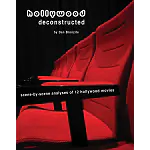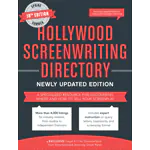So what is a character arc, you ask? Sounds complicated. Well, it doesn’t have to be, although a complicated character arc may be just what your screenplay needs. A character arc could also be described as a journey that a person goes on during the course of your movie, or the development in their personality they experience or the evolution of an aspect of their persona – such as emotional, physical or psychological. All of the above are valid character arcs that could help to engage an audience.
Why does a character need an arc? Well, it may be intentional that your protagonist (hero or heroine) doesn’t, and if so, that’s fine, so long as it is clear that is the case and that the rest of the story and theme support this choice. But more often than not a film will lose an audience if the lead character does not go on some kind of transformational journey.
Think of Luke Skywalker in the first Star Wars movie and also in the complete franchise. He starts off as a naive farm boy with foolish hopes of exploring the solar system. He struggles with authority and even the notion of responsibility and “The Force”. But as the story progresses, obstacles are thrown in his way which he must summon up an inner strength he did not know he had in order to overcome, and by the end of the movie he is living his dream, fighting villains and saving a Princess. That’s his arc. That’s his journey. Without it the movie wouldn’t have been so engaging.
And what’s more, he’s not the only one in the story with an arc – and that’s a key point. When writing a script, don’t make the mistake of focusing all of your attention on the hero’s arc. Sometimes it is equally as important to plan an arc for the antagonist (villain) and supporting characters so that they too read as three-dimensional, real-life characters that have their own lives outside of the movie we see and that they are not simply there to support the hero in his quest.
To sum up: if you want your audience to truly identify with your protagonist then create a complex journey for them to take. Everybody has hopes, fears, dreams and flaws. Make sure your central character has too. What is their goal? Is it emotional or physical? What do they really want? How will they change throughout the story? What obstacles force them to change? Ask yourself these important questions as the narrative progresses so that each key event of the story not only serves the plot but is intrinsically linked to the overall “theme” and your central character arc.




